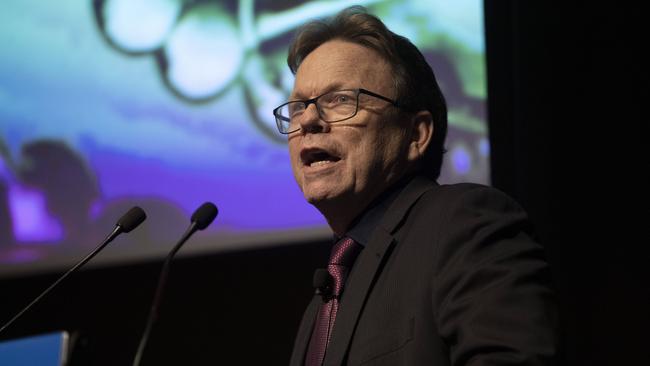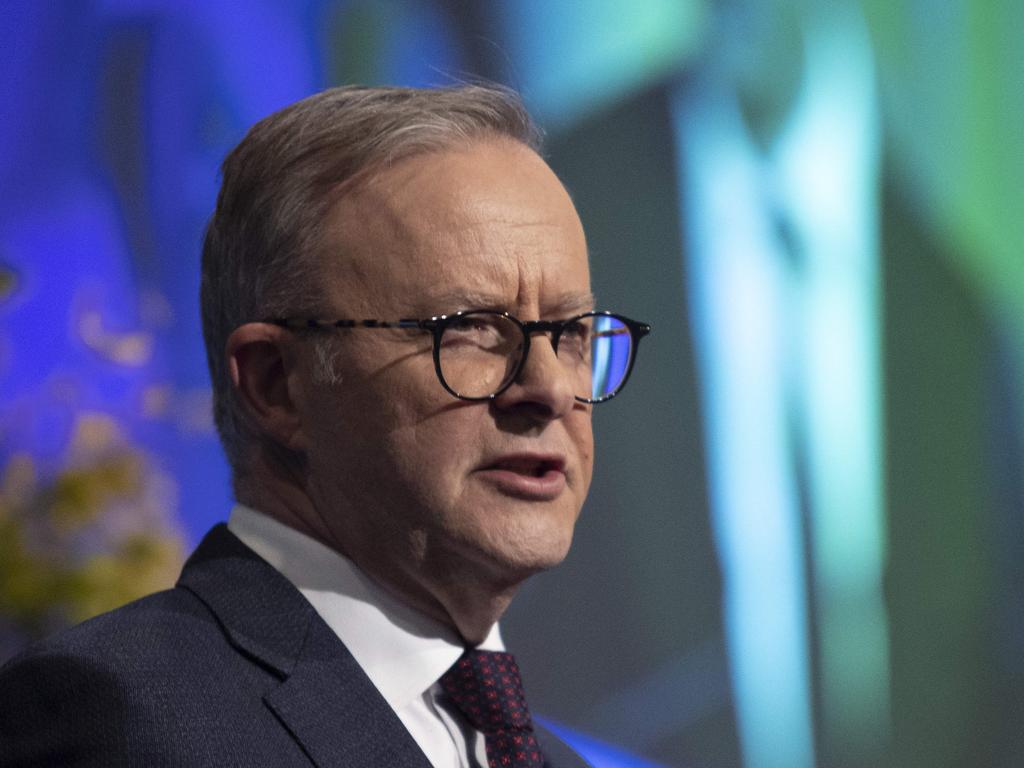Outlook Conference: Bosses ‘wrong’ to declare IR back to 1970s, says labour expert
Labour market expert Mark Wooden dismisses employer claims that Labor’s workplace changes represent a ‘return to the 1970s’.

Expanding multi-employer bargaining is no guarantee wages will increase, according to labour market expert Mark Wooden, who dismissed employer claims that Labor’s workplace changes could represent a “return to the 1970s”.
Australia’s stagnating wages and the government’s pledge to get them moving again amid inflation have been debated at the Economic and Social Outlook Conference, hosted by The Australian and Melbourne Institute.
Professor Wooden, a professorial fellow at the Melbourne Institute: Applied Economic and Social Research, and a member of the Fair Work Commission’s annual wage review expert panel, highlighted the significant differences between the wages system of the 1970s and 2022.
He cited the spike in wages and inflation in the 1970s as well as union membership being at 50 per cent. In contrast, real wages are forecast to fall for the next two years and union membership was about 14 per cent in 2020, and less in the private sector.
Unions had unfettered rights to enter workplaces in the 1970s compared to current restrictions.
“It’s a very different world,” he said. “It’s a much harder one for unions to organise in. They’ve got fewer members. They’ve got less power. So I haven’t heard of any legislation that’s going to dramatically change that.”
Professor Wooden also highlighted the high number of days lost to industrial action
“It‘s 20 days lost for every 1000 employees in 2022. In 1974, it was over 1200 days lost. The average in the 1970s was three million days being lost every single year to industrial action. This is a totally different world. To go back there just seems inconceivable to me.”
He said “back in the 1970s there were 3000 awards resulting in overlapping wage increases, compared to 121 awards today. The composition of industries had also changed dramatically, as goods-producing industries – agriculture, mining, manufacturing, construction – about 40 per cent of employment in 1974. “I don‘t think there’s really any likelihood of us returning to the 70s regardless of the current legislation,” he said.
He also said many countries had multi-employer systems of sectoral bargaining either on an industry basis or regional basis.
He said “a switch to multi-employer bargaining is no guarantee that wages are going to improve”.
“I see a lot of attention has been devoted to the supported bargaining stream, which is going to replace what was the low-paid bargaining stream, but I sort of don’t get it.
“Why do we need a bargaining stream for low-wage industries or sectors when we have awards? Awards are there to protect low-wage workers. Twenty five per cent are on awards, and awards are increased every year.
“Last year was 4.6 to 5.2 per cent, depending on exactly which award rate you’re on. And over the last decade, the rates of increase in awards, rates of pay, have been higher than inflation, higher than the cost-of-living indexes and higher than the wage price index, so higher than the level of the average worker. So I don’t know what this is doing. If you want to have bargaining in the low-wage sectors, you’re going to have to get rid of awards because surely awards affect the likelihood that employers are going to be more interested in bargaining.”
ANZ senior economist Catherine Birch said non-wage measures were being used to attract employees to their companies.
“The best way for workers to get a large pay rise is to change jobs,” Ms Birch said.
“(They include) through a promotion at their employer, moving to take a similar job at another employer, or switching occupations.”
She said while the wage index has not increased, average earnings per hour have increased.As well, she said wage growth is not a key driver of inflation.
Brotherhood of St. Laurence executive director Travers McLeod said in order to help workers who experience “entrenched” disadvantage, outreach services need to be consistently funded to ensure they have the skills necessary to enter the workforce.
“There does need to be an honest look … at our service systems and how they build capability and confidence,” he said.
“I (also) think something should be said about single parents and their children. They spend about 98 per cent of their income. Children (of single parents) are three times more likely to live in poverty (compared with those who have two parents).”







To join the conversation, please log in. Don't have an account? Register
Join the conversation, you are commenting as Logout